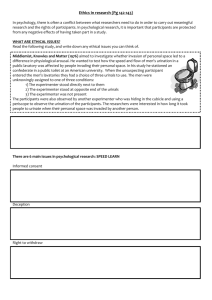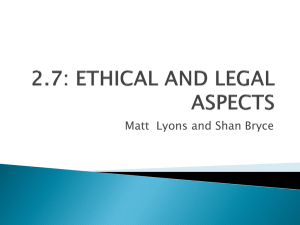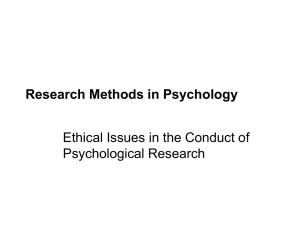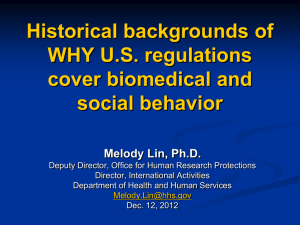powerpoint – ethics experimental method
advertisement
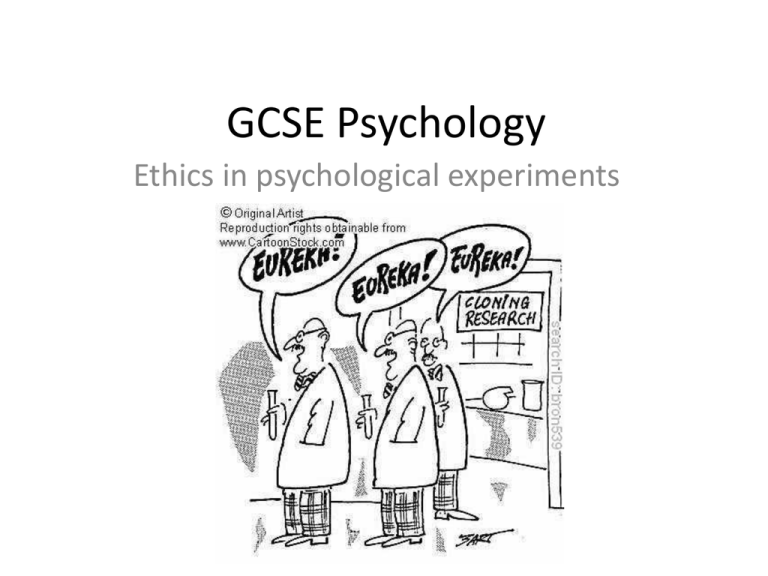
GCSE Psychology Ethics in psychological experiments Homework check • Have you completed the exam question – hand in now • What did you notice about the Derren Brown clip and ethical considerations? • What does DRIPP stand for? • What would you change about your own experiement to make it more ethical? Learning objectives • To learn about the ethics involved when using humans in research. • To focus on what is meant by ‘informed consent’ and ‘the right to withdraw’. • To investigate how ethical issues are solved. Copy the following key terms... • ethical issues – potential psychological or physical risks for people in experiments. • informed consent – an individual’s right to know what will happen in an experiment, and its aims, before agreeing to participate. • right to withdraw – a participant’s right to leave a study at any time and their ability to do so. • ethical guidelines – advice to help psychologists solve ethical issues. Are these studies ethical? • For each of the following studies, state whether or not you think ethical guidelines have been followed. • Explain your answer. Are these studies ethical? 1) An experimenter in a pick-up truck, with a rifle visible in the back, and a sticker on the bumper saying 'VENGEANCE', stops at red lights. The experimenter does not move when the lights turn green thus blocking the traffic. The experimenter wants to find out if a display of aggressive items such as the gun will put people off honking their horn. Are these studies ethical? 2) Sleeping participants are woken up every time they start to dream (i.e. several times per night) for 5 nights in a row. Participants become increasingly paranoid during the daytime. The experimenter wants to find out the effect lack of dream – sleep has on people. Are these studies ethical? 3) Participants are either given name badges to wear, or they are given a Ku Klux Klan style hood with holes cut for eyes. They are then given the opportunity to “condition” (train) confederates to make them ‘nicer’. They are told this to do this by giving them electric shocks whenever they act in what they consider to be a bad way (however, no real electric shocks are given). An investigation into the effect loss of identity (through wearing a uniform hood) has on willingness to hurt others. Are these studies ethical? 4) Electric shocks are given to homosexual men as they view photographs of clothed and naked men. The experimenter wants to find out if punishment can cure homosexuality. Are these studies ethical? 5) Participants are presented with 2,000 sheets of random numbers, asked to add up to 224 pairs of numbers on each sheet, then tear the sheet into 32 pieces before going on to the next. After five hours of this clearly useless task, some of the subjects are still going and have to be stopped by the experimenter. The experimenter wants to find out whether people will do things for a psychological researcher that they would not do for other ‘normal’ people. What did you think? 1) No fully informed consent, no right to withdraw 2) Fully informed consent given, right to withdraw given 3) Fully informed consent given, right to withdraw given 4) Hmmm 5) Fully informed consent, no right to withdraw
